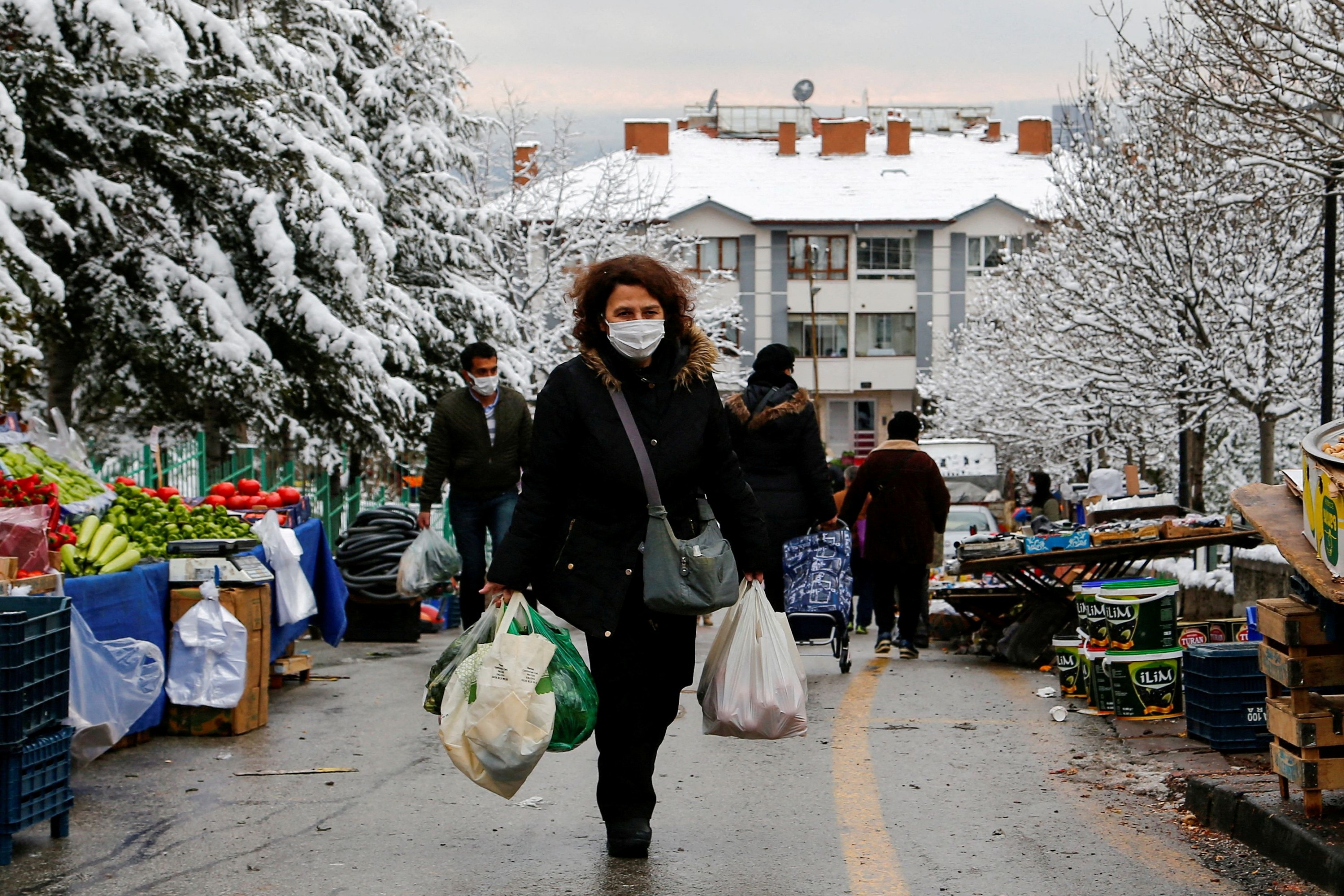Turkey's inflation soars to 54.4% even before oil jump kicks in
Sign up now: Get ST's newsletters delivered to your inbox

Month-on-month, consumer prices rose 4.8 per cent last month.
PHOTO: REUTERS
ISTANBUL (BLOOMBERG, REUTERS) - Turkey's annual inflation jumped more than expected to 54.4 per cent in February, according to data on Thursday (March 3), a two decade high fuelled by a crash in the lira currency late last year and higher commodity prices.
The oil rally propelled by Russia's invasion of Ukraine is set to further fan price gains.
Compounding Turkey's inflation crisis, the lira has sunk 5.3 per cent against US dollar this year, the most after the Russian ruble and Polish zloty among major emerging markets.
Month-on-month, consumer prices rose 4.8 per cent last month, compared to a Reuters poll forecast of 3.8 per cent and an annual forecast of 53 per cent.
The producer price index soared 7.2 per cent month-on-month for an annual rise of 105 per cent, in a reflection of the rise in commodity prices amid Russia-Ukraine tensions.
Turkey's central bank already expects year-end inflation at 23.2 per cent, more than four times its target, after rate cuts in 2021 weakened the lira. But that estimate was based on oil at US$80.4 a barrel. With crude prices at an 13-year-high having topped US$117, Turkey's energy import bill will balloon.
That's bad news for President Recep Tayyip Erdogan's re-election bid next year as a cost-of-living crisis drains some support. Mr Erdogan said on Tuesday that inflation "will be under control" by the summer.
With the president vowing to use the cheaper lira to turn Turkey into a manufacturing power, interest rate hikes aren't on the agenda to curb price gains. The Finance Ministry has vowed to "ensure continuation of food and commodity supply."
The central bank cut rates by a cumulative 500 basis points in four meetings from September. The reductions pushed the official rate to almost negative 35 per cent when adjusted for annual inflation, sending the currency into a tailspin.
Following a brief calm as a government savings programme stabilised the lira, it's again under pressure with investors avoiding riskier assets amid a slew of sanctions imposed on Russia over its war on Ukraine. Moscow supplies more than half of Turkey's gas while Russian tourists have been a major source of income.
The war in Ukraine is adding pressure on Turkey's external financing costs and currency, said Gizem Oztok Altinsac, chief economist of Turkish Industry & Business Association. "We had predicted before the Ukraine crisis that Turkish inflation would touch 60 per cent in May or June. Now, upside risks have emerged on our forecast," she said.


